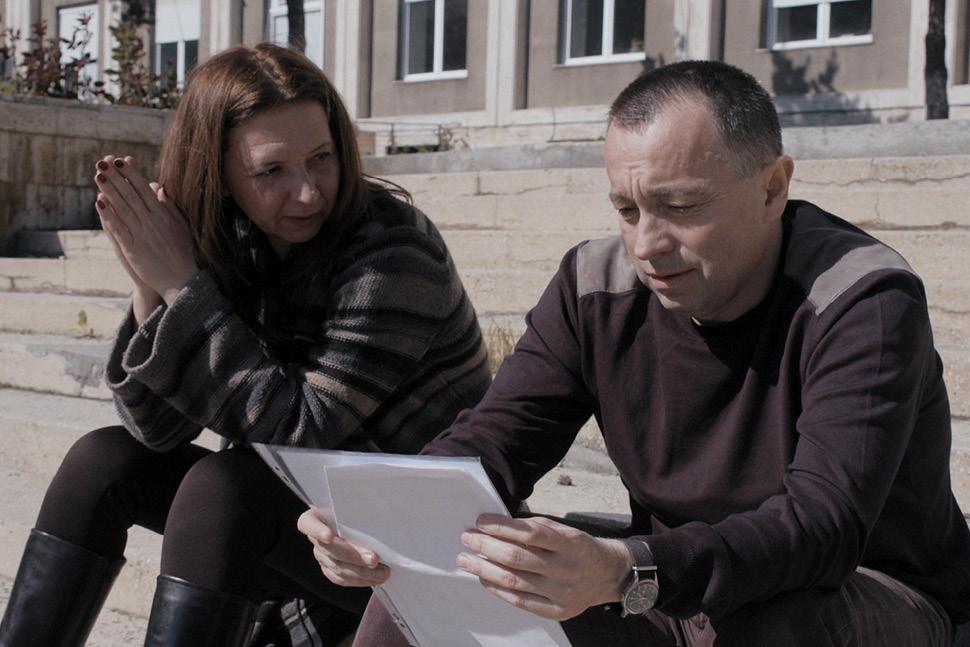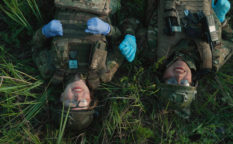Review: Collective (2019), by Alexander Nanau

When the fire broke out at the rock club Colectiv in Bucharest, Romania during the concert of a local heavy metal band, 27 of the visitors died instantly and about 180 injured were rushed into hospitals. The public was outraged not only because of the low fire security standards (the club operated without the fire exit), but also because what happened next: the subsequent death of 37 more people at the hospitals whose burns weren’t possible to treat, because they also harbored some of the most vicious hospital bacteria. The massive protest ensued, and the Social Democrat government was forced to resign. The new, technocratic government was appointed for one-year period of time, until the new general elections.
That is what we learn from the introductory title cards of Collective, the documentary directed by Alexander Nanau (The World According to Ion B., Toto and His Sisters) that has just premiered at the Venice 76 section out of competition. And that is only the beginning of a story that focuses on journalistic investigation conducted by Catalin Tolontan and his colleagues from Sports Gazette that targeted massive corruption within the Romanian health-care system.
As Tolontan and his crew learn, some of the people who died were just mildly affected by the fire, but the actual cause of death was bacterial infection. The hospitals, including the one specialized in burns, were unwilling to send the patients abroad, sticking to the official story that the Romanian hospitals operate on the same level and within the same standards as the ones in Western Europe. That could not be further from the truth since the official statistics place Romania at very bottom of EU regarding that matter.
The reason for that are pretty poor sanitation standards and monopolistic position of one domestic private chemical company that provides the antiseptic products of poor quality (sometimes also severely diluted). That corruptive scheme made the owner of the company very rich, the patients with various problems were put in danger and the whole health-care system was exposed. With the change of the minister and the former patients rights activist Vlad Voiculescu taking charge, some things were about to change. But sooner rather than later, he also finds himself over his depth with all the accumulated problems.
The journalistic appeal of the documentary, quite similar to docu-drama classics, both domestic (Tudor Giurgiu’s Why Me?) and global (All the President’s Men, Spotlight), should propel Collective to a healthy dose of festival exposure in the months to come. The dynamism of its rhythm is enhanced with clever use of dramaturgical tools taken from fiction cinema. For instance, the suspicious death of the chemical industry tycoon and the first suspect adds the layer of crime movie tension, while the subplot about one of the victims, the woman named Toby who goes through the rehabilitation infuses Collective with human drama. Nanau and his co-writer Antoaneta Opris also treat us with some textbook heroes and villains in this “a few good men against the machine” type of story.
The style, quite similar to what is called Romanian New Wave works quite well with the material. Hand-held camera operated by Nanau himself and the sound scheme consisting usually of background noises seem a fit stylistic choice. Collective could serve as a documentary counterpart to the recent socially charged fiction classics of Romanian cinema.
Country: Romania/ Luxembourg
Language: Romanian, English
Runtime: 109 min.
Production: Alexander Nanau Production, Samsa Film, HBO Europe
Producers: Alexander Nanau & Bianca Oana
Director/ Cinematographer: Alexander Nanau
Written by: Alexander Nanau & Antoaneta Opris
Editing: Dana Bunescu, George Cragg, Alexander Nanau
Sound Recordist: Mihai Grecea
Sound Mixer: Michel Schillings
Sound Mix Consultant: Florin Tabacaru
















